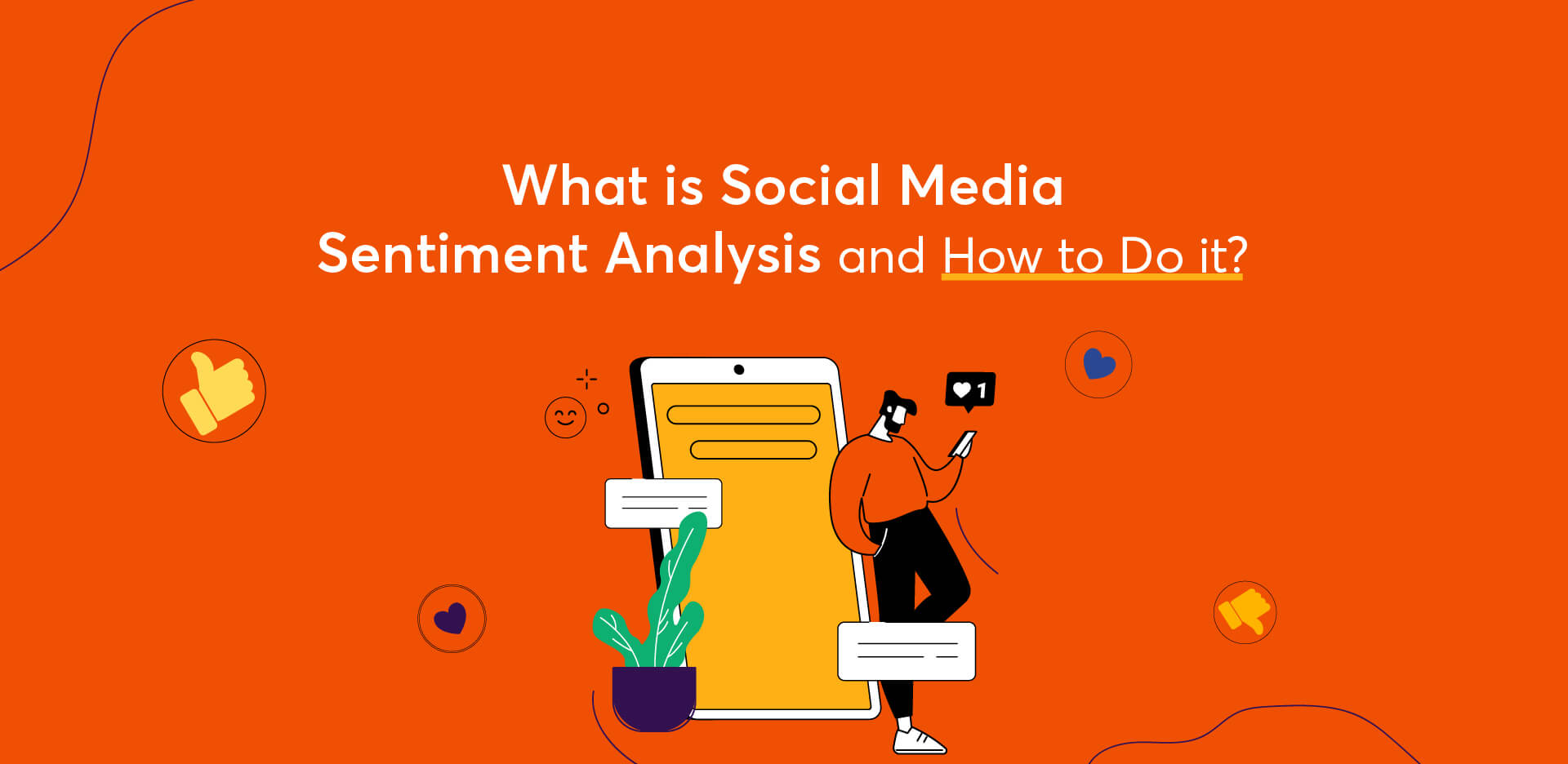In the fast-paced world of social media, every interaction, comment, and review can significantly impact a brand’s reputation. Understanding how people feel about a product, service, or topic on social media is crucial for businesses to stay competitive. This is where Social Media Sentiment Analysis tool come into play, offering valuable insights that help companies make data-driven decisions and enhance customer experience.
Unleashing the Power of Social Media Sentiment Analysis Tool: Elevate Your Business Strategies

What is Social Media Sentiment Analysis?
Social Media Sentiment Analysis, also known as Opinion Mining, is the process of analyzing and extracting emotions, opinions, and attitudes expressed in social media content. By using Natural Language Processing (NLP) and machine learning algorithms, these tools can determine whether a particular sentiment is positive, negative, or neutral.
The Importance of Social Listening Sentiment Analysis
Understanding the sentiment of social media posts is essential for businesses to gauge their online reputation accurately. Positive sentiments can boost brand loyalty, attract new customers, and drive sales. On the other hand, negative sentiments can damage a brand’s image and lead to customer churn.
How Social Media Sentiment Analysis Works
- Data Collection: Social media sentiment analysis tools gather data from various platforms like Twitter, Facebook, Instagram, and more. The larger the dataset, the more comprehensive the analysis.
- Natural Language Processing (NLP): NLP algorithms process and interpret the text, breaking it down into individual components and identifying the context and emotions behind each word.
- Sentiment Classification: The processed data is then classified as positive, negative, or neutral, based on the emotional tone.
- Data Visualization: The results are presented through easy-to-understand graphs and charts, providing actionable insights for businesses.
Benefits of Using a Sentiment Analysis Tools
Brand Reputation Management: By monitoring sentiments, companies can promptly address negative feedback and protect their brand’s reputation.
- Customer Feedback and Insights: Sentiment analysis helps identify customer preferences, pain points, and expectations, enabling businesses to improve their products and services.
- Competitor Analysis: Analyzing competitor sentiments can give companies a competitive edge by understanding market trends and customer sentiments towards rival brands.
- Crisis Detection and Management: Sentiment analysis allows businesses to detect potential crises and take preventive measures to avoid major reputation damage.
Choosing the Right Social Media Sentiment Analysis Tool
- Accuracy and Reliability: Choose a tool with high accuracy and reliability in sentiment classification.
- Data Sources and Integration: Ensure the tool supports integration with various social media platforms to collect comprehensive data.
- Real-time Monitoring: Real-time analysis allows businesses to respond quickly to emerging trends and issues.
- Customization and Flexibility: The tool should be customizable to suit specific business needs and industries.
Best Practices for Effective Social Listening Sentiment Analysis
- Understand Your Objectives: Clearly define the purpose and objectives of the sentiment analysis to focus on relevant insights.
- Define Your Metrics: Choose the key metrics to measure sentiment effectively, such as Net Sentiment Score or Emotional Analysis.
- Train the Tool for Your Industry and Brand: Fine-tune the tool to recognize industry-specific terms and brand mentions accurately.
- Context is Key: Consider the context of a post to avoid misinterpretation of sentiments.
- Monitor Trends and Patterns: Regularly analyze trends and patterns in sentiments to identify emerging issues or opportunities.
- Human Verification and Interpretation: Human verification ensures the accuracy of the analysis and prevents misinterpretation.
Challenges
- Ambiguity and Sarcasm: Understanding sarcasm and ambiguous language can be challenging for sentiment analysis tools.
- Multilingual Content: Analyzing sentiments in multiple languages requires advanced language processing capabilities.
- Handling Big Data: The vast amount of social media content demands efficient data processing and storage.
- Emotional Complexity: Human emotions are complex, making it difficult to capture the nuances accurately.
Future Trends
- Advancements in NLP and AI: Continuous advancements in NLP and AI will lead to more accurate sentiment analysis.
- Integration with Business Intelligence Tools: Integration with BI tools will provide deeper insights for decision-making.
- Predictive Analysis: Sentiment analysis will evolve into predicting future trends and customer behavior.
- Emotionally Intelligent Marketing: Brands will use sentiment analysis to create emotionally resonant marketing campaigns.
Case Studies: Breaking Records with Social Media Sentiment Analysis
Case Study 1: Coca-Cola’s Viral Campaign Success
Coca-Cola launched a global social media campaign using personalized bottles with names, encouraging customers to share their experiences online. Using a social media sentiment analysis tool, Coca-Cola monitored the campaign’s impact in real-time. The tool detected overwhelmingly positive sentiment, with a 25% increase in brand mentions within the first week. The campaign went viral, resulting in a 7% boost in sales in the targeted regions.
Influencer Quote:
“Coca-Cola’s personalized bottle campaign is a masterclass in understanding and leveraging customer sentiment. It’s no surprise they saw such a massive spike in engagement and sales!” – @SocialMediaGuru
Case Study 2: Samsung’s Crisis Management During the Galaxy Note 7 Recall
When Samsung faced the Galaxy Note 7 battery issue, social media exploded with negative sentiments. Samsung quickly utilized sentiment analysis to gauge the severity of the backlash. By identifying key pain points and customer concerns, they were able to address issues directly, offer solutions, and eventually shift public sentiment. Their swift response and transparency led to a recovery of brand trust, reducing potential long-term damage.
Influencer Quote:
“Samsung’s handling of the Galaxy Note 7 crisis is a textbook example of how sentiment analysis can be pivotal in crisis management.” – @TechInsider
Case Study 3: Nike’s Strategic Product Launch
Nike used social media sentiment analysis to monitor customer feedback during the launch of their latest running shoes. By analyzing real-time data, they identified that customers were excited about the design but concerned about the price. Nike responded by offering limited-time discounts, which increased sales by 15% in the first month. The sentiment analysis also helped them tweak their messaging to better align with customer expectations.
Influencer Quote:
“Nike’s ability to adapt its launch strategy based on real-time customer sentiment is what sets it apart from the competition. They really know how to listen to their audience!” – @MarketingMaven
Record-Breaking Examples
- Wendy’s #NuggsForCarter: Wendy’s achieved a Guinness World Record for the most retweeted tweet when a fan asked how many retweets he needed for a year of free chicken nuggets. The viral campaign, which was closely monitored using sentiment analysis, generated overwhelmingly positive sentiment, boosting Wendy’s brand engagement by 35%.
- Starbucks’ #RedCupControversy: During the holiday season, Starbucks faced a social media storm over their plain red cups. Using sentiment analysis, they detected the backlash early and responded by encouraging customers to share their own holiday cup designs. This proactive approach turned a potential crisis into a user-generated content campaign, leading to a 20% increase in holiday season sales.
Influencer Quote:
“Starbucks’ turnaround on the #RedCupControversy shows how powerful sentiment analysis can be in flipping the narrative in your favor.” – @BrandStrategist
Tweet This!
“Social Media Sentiment Analysis isn’t just a tool—it’s a game-changer. Whether you’re launching a product or managing a crisis, understanding customer sentiment is key to staying ahead. 🚀 #DigitalMarketing #BrandManagement” – @YourBrandHandle
Conclusion
Social Media Sentiment Analysis is a powerful tool that empowers businesses to understand and harness the emotions expressed by their customers. By making data-driven decisions based on sentiment analysis, companies can enhance their reputation, improve products and services, and stay ahead of the competition.
Ready to take your business to the next level with advanced Social Media Sentiment Analysis? Request a demo from AIM Technologies today and unlock the potential of understanding your customers better than ever before.
FAQs
What is the role of sentiment analysis in social media marketing?
- Social media sentiment analysis helps marketers gauge customer reactions, allowing them to tailor campaigns and respond to feedback effectively.
Can sentiment analysis tools analyze emojis and emoticons?
- Yes, advanced sentiment analysis tools can interpret emojis and emoticons to understand emotional context better.
How can sentiment analysis benefit small businesses?
- For small businesses, sentiment analysis offers valuable insights into customer preferences and helps build a loyal customer base.
Is sentiment analysis equally effective for all social media platforms?
- Sentiment analysis may vary in effectiveness across platforms due to differences in language usage and audience demographics.
Can sentiment analysis help in crisis management for large corporations?
- Absolutely! Sentiment analysis can detect potential crises early, allowing large corporations to take prompt action and mitigate negative impacts.




